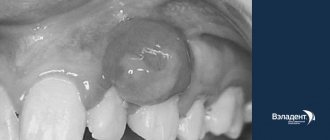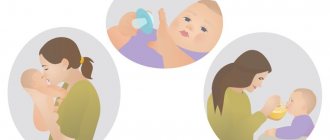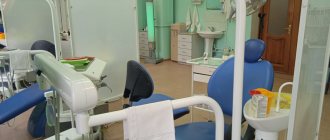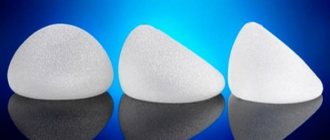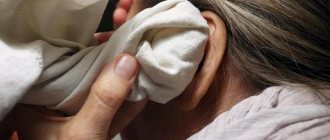The baby is crying, your chest is full, but you are determined to stop breastfeeding. There can be many reasons: it’s time to go to work, it’s time to send the child to kindergarten, health conditions, and even “I just decided so.”
Weaning can be a real test of strength for the whole family: there are cases when children completely refuse to give up breastfeeding and simply tyrannize their mother, almost tearing off her clothes. Is it possible to avoid problems along the way? How to make the process as comfortable as possible for mother and child? Parents.ru learned from an expert what mistakes mothers make when weaning their baby.
Tatyana Kuznetsova is a pediatrician, nephrologist, and breastfeeding consultant at the SM-Doctor clinic in Maryina Roshcha.
Too early
Breastfeeding is a very short stage in a child’s life.
It would be ideal to feed the baby until the age when his need for latching subsides on its own. The age at which a child himself, without mother’s help and serious efforts on her part, is ready to give up breastfeeding usually occurs after three years. The mother’s body is ready to complete lactation earlier - already at 1.5-2 years of age. Completion of lactation at an earlier stage is not physiological and, as a rule, is associated with errors and diseases:
- rare feedings,
- adding water,
- early complementary feeding,
- cracked nipples,
- lactostases,
- mastitis and, as a consequence, lack of milk and underweight of the child,
- or problems with the mother's health.
Weaning before 1 -1.5 years is possible, both planned and emergency, and for this, as a rule, there are good reasons: hospitalization of the mother, the need to take medications incompatible with feeding the child, family situations requiring the mother’s departure, and others unseen circumstances.
What to do when a tooth hurts during breastfeeding
Dental treatment during pregnancy is not prohibited if it is performed by an experienced dentist. Only he can properly relieve pain and eliminate provoking factors. Before starting treatment, you should tell your dentist about breastfeeding so that the doctor can select safe medications. X-ray examinations are not contraindicated, since during the procedure the patient’s body is protected by a lead apron. After the procedure, doctors recommend expressing breast milk.
Filling crowns and extracting masticatory organs is also permitted using safe medications. There is no need to switch to artificial feeding during this period. Prosthetics, implantation, and installation of braces are not advisable. It is important to contact a specialist in time, then harm to the mother and child will be excluded.
Painkillers
Painkillers for toothache should be prescribed to a nursing mother by a doctor. If a woman decides to drink something on the advice of a neighbor, it can be harmful to her health, because the drug may not be suitable for the patient.
- The specialist will select medications with a short-term effect that are not dangerous for mother and baby.
- He will correctly determine the dose of the drug.
- The doctor will explain to the woman when the medicine leaves the milk.
- Modern antibiotics that are compatible with breastfeeding are usually prescribed.
According to indications, the dentist may prescribe Nurofen, which is not contraindicated even for the smallest children. Panadol, paracetamol, acetaminophen, efferalgan, injections of ultracaine, ice-caine are prescribed. as local anesthetics, which are used only as injections. Voltaren and Ortofen are eliminated from the body quickly; after 2 hours the concentration becomes minimal. Sometimes you can get by with rinsing your mouth with furatsilin or Kalgel gum gel.
ethnoscience
Painkillers for toothache while breastfeeding are selected by a doctor. To relieve discomfort, you can additionally take decoctions and tinctures after consultation with your dentist.
- Rinsing the mouth with salt water, baking soda solution, sage or chamomile infusion.
- Dental drops are available from pharmaceutical preparations.
- A decoction of oak bark is often recommended in such cases.
- Rinsing your mouth with bigluconate or chlorhexidine will help.
- Sometimes a hydrogen peroxide solution is used to rinse.
- A piece of fresh lard or raw beets is placed on the affected tooth.
These recipes from traditional healers have been tested by time and practice. But you shouldn’t expect miraculous healing from them. They will only alleviate the condition of a sick woman, as they are additional means of therapy. In order not to provoke a deterioration of the condition, the carious cavity should not be clogged with food particles. Therefore, after each meal you should rinse your mouth with clean water.
Too fast
First of all, it is very important to determine how ready a particular mother-baby pair is to complete breastfeeding. The readiness of the mother’s body is easy to determine. The main indicator is how the breasts fill with milk during a long (up to 12-24 hours) break in the baby's feeding. If a mother has not fed her baby for several hours, and her breasts are not filled to the point of discomfort and do not need to be pumped, then the mother is ready.
As for the baby, it is considered that the child is ready if he has only 1-3 attachments left per day and at the same time he does not suck pacifiers (pacifiers, bottles), pens, toys, rags, clothes, lower sponge, etc. In all other cases, you need to gradually reduce the number of applications to 1-3 per day and only then take the last step.
If the baby is already 1.5 years old, you can try to prepare him for weaning gradually. Children over one and a half years old need at least two months to do this. Smooth weaning consists of several stages, each of which can take about 1-2 weeks.
- Reduce latching while your baby is awake, eliminate “latching out of boredom.” Do not provoke your baby: do not change clothes in front of him, do not wear underwear, do not sit idle in the presence of the child.
- Put your baby to sleep during the day without breastfeeding.
- Next, remove evening falls asleep under your breasts. First, take the breast from the baby if he falls asleep after pumping, but still holds it in his mouth.
In the morning, get up before your child.
Distract with extraneous things, offer to play, look out the window. One fine day the baby will simply forget to breastfeed in the morning. In the gradual process of weaning, the most important thing is not to rush things and follow the rule of “one step forward, two steps back.” Then your weaning will be smooth and painless.
Risks of self-medication
Some patients are terrified of dentists, so they try to self-medicate. The first wrong step is to use the advice of neighbors and friends who are not competent in this matter. For example, a common mistake is to take dietary supplements with a minimum amount of microelements, instead of carrying out deep fluoridation of teeth. It is very dangerous to diagnose yourself, since the symptoms of many diseases are similar. As a result of taking inappropriate medications, the body malfunctions. Women's milk disappears or becomes unsuitable for feeding. Without knowing this, young mothers continue to feed their babies, which poisons their body. In addition, the toddler may develop allergies, swelling, and difficulty breathing. Therefore, in order not to endanger her child, every mother should follow the doctor’s recommendations.
Of the preventive measures, the first place is regular cleaning of the oral cavity, rinsing the mouth after meals, using floss, and timely replacement of the toothbrush. Pregnant women and nursing mothers should eat a balanced diet and consume foods rich in calcium. Preventive examinations should be carried out once every six months. If there are problems, it is better to solve them immediately, to prevent depulpation of the masticatory organs.
Too radical
Among mothers, extremely traumatic methods of weaning a child from the breast are still practiced - “breast pulling”, taking drugs that suppress lactation, lubricating nipples with brilliant green or mustard, leaving home for a day or two/weekends.
As a result, this leads to hormonal imbalance, lactostasis and even mastitis in mothers and serious psychological trauma in children. For a child, weaning is a very difficult period in life, and the mother must definitely be there, compensating for the lack of breasts with her attention, affection and care. It is also important to take into account that the time of weaning should not coincide with a vacation, a move, the mother going to work or the baby going to kindergarten, the appearance of a nanny in the house, the baby’s teething, or the baby’s illness. In this case, it is better to wean the child 2-3 months before the planned event, or 2-3 months after. Stopping breastfeeding should not take place simultaneously with moving the baby to a separate crib, much less a room. It is better to wait 3-4 months with this. And one more factor that is worth paying attention to is the psycho-emotional state of the baby. If he is now going through a difficult period, he rebels or is often capricious, it is also better to wait a little with excommunication.
Why can a nursing mother's teeth hurt?
The main reason for the pathology of the chewing organs during lactation is that the young mother did not care about the health of the oral cavity before conceiving the child. Under the influence of increased stress on the body, various problems begin to arise. Since enamel has a porous structure, acids easily penetrate its layer, washing away useful minerals. Their replacement is disrupted due to increased load, which is why problems arise. They can be solved by remineralization of teeth, that is, restoration of enamel by replenishing mineral deficiency. Common provoking factors include:
- Damage to periodontal tissues, their inflammation.
- Caries accompanied by pain. True, in the early stages there is no discomfort. The sooner treatment begins, the easier the therapy will be.
- Improper cleansing of the oral cavity, insufficient care of the chewing organs.
These are just some of the causes of the pathology. The root of the problem often lies in the following aspects:
Severe calcium deficiency
Toothache with breastfeeding appears due to a lack of such a necessary element as calcium. Full health without its abundance is impossible. And most women experience a deficiency already during the period of bearing a child. If this is not dealt with, the problem will progress, which will cause serious consequences, especially for the masticatory organs. Typically, in such situations, dentists prescribe special therapy to patients - a course of taking certain medications. The doctor will determine which drug is appropriate in a given situation. It is important to strictly follow the dentist’s recommendations so that the body is not harmed and the treatment does not harm the embryo.
Pulpitis
This is a common complication of caries, in which acute pain suddenly appears in the form of an attack. A painful reaction clearly manifests itself to spicy, salty, cold, sour, and hot foods. Discomfort increases at night. Inflammation of the neurovascular bundle is accompanied by headache, malaise, and swelling. How to recognize that the nerves are inflamed?
- Intense shooting pain appears at night;
- Prolonged pain reaction to temperature stimuli;
- Spread of unpleasant sensations to the cheekbone, ear, temple, back of the head;
- Bad breath;
Sometimes the disease is accompanied by fever. Most often this occurs with pulp necrosis.
Periodontitis
This pathology appears due to caries and pulpitis. In such a situation, a tooth hurts during toothache, severely, acutely, especially when it touches a damaged unit. This disease is serious. It affects all the tissues surrounding the root of the masticatory organ. The gums become red and swollen, and the lips and cheeks may swell. If diagnosis and therapy are not carried out in a timely manner, the sick unit can be lost. The infection quickly penetrates deep into the root canals, destroying the organ completely.
Endocrine system disorders
The thyroid gland is a very important organ. Without its proper functioning it is impossible to have good health. If the endocrine system malfunctions, the oral cavity, gums and chewing organs suffer. Since hormonal levels are disrupted during pregnancy and lactation, the produced enzymes become insufficient for the full development of the baby’s body and the good condition of the mother. Therefore, a visit to an endocrinologist in such cases is necessary. Only a specialist can determine the causes of the pathology and eliminate it.
Too dangerous
Stopping breastfeeding at a stage when the mother’s body is not yet ready for it can have serious consequences for her health. At best, the mother will be forced to pump regularly for some time. Painful sensations, engorgement of the mammary glands, and the development of lactostasis are also possible, which are quite difficult for the mother to cope with without the help of the baby. In addition, such hormonal changes unplanned by the body can provoke the development of depressive conditions, as well as long-term (up to several years!) secretion of milk from the mammary glands after stopping breastfeeding.
What to do, if…
...it doesn’t work
By reducing the number of daytime applications, nightly applications may become longer and more frequent for some time. If the situation does not change after a couple of weeks, this most likely means that the child is still finding it difficult to come to terms with such restrictions. In such a situation with weaning, it may be better to wait.
When your baby starts sucking his finger, lower lip, or anything else, these symptoms cannot be ignored. Your baby is not ready to stop breastfeeding yet. Moreover, this behavior of the baby indicates that it is very difficult for him to come to terms with the changes that are taking place; he suffers greatly internally. And if you do not treat such a quiet protest of the little man with understanding, this can seriously affect the baby’s nervous system in the future.
...the baby himself refused milk until he was one year old
This cannot be regarded as a physiological event.
Many mothers jump at this chance to finish breastfeeding without any problems. However, it may turn out that the child is not yet quite ready for weaning, and there are important reasons that can provoke this behavior: teething, elevated body temperature, upper respiratory tract infection, ear inflammation, painful jaw movements, nasal congestion, sore throat, wounds, bacterial, fungal infections in the mouth and more. The child should be taken to the pediatrician immediately. Published on the portal parents.ru

